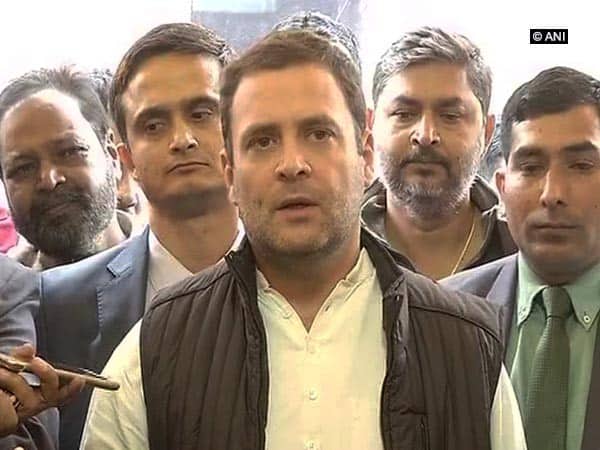Job creation, revamping of the education system and making India the global hub of health care are the three goals which Rahul Gandhi has set for a “new, shining” Congress, as he told a convention of NRIs in Bahrain recently.
Since there’s many a slip between the cup and the lip, it is too early to say whether his hope of being in a position to fulfil these promises will come true. But as far as the Congress is concerned, the objectives which he underlined denote a shift from the party’s earlier policies which can be said to have led to its downfall in 2014.
The leitmotiv of those policies, which were the handiwork of the Left-leaning National Advisory Council (NAC) headed by then Congress President Sonia Gandhi, was populism, which cared little for either fiscal discipline or for being in tune with the economic reforms introduced in 1991 and continued by Manmohan Singh from 2004.
Nothing exemplified the absence of monetary restraint more than Sonia Gandhi’s pet project of food security, which aimed at providing subsidised food to an estimated 67 per cent of the population at an annual cost of Rs 1.25 lakh crore. There were other such profligate initiatives as well, including the rural employment programme, which were ostensibly targeted at the poor.
But they didn’t help the party. Instead, the voters turned from the lure of doles and freebies to the prospect of employment promised by Narendra Modi. The age of subsidies provided by a paternalistic, mai-baap ki sarkar was over.
If Rahul Gandhi has understood this, it is all to the good. What his emphasis on job creation, etc., shows is a welcome change of focus from his mother’s socialistic approach (which she appears to have learnt from Indira Gandhi) to an encouragement of free enterprise, which will boost growth, which was a dirty word for the NAC’s Aruna Roy who lamented Manmohan Singh’s preoccupation with economic development rather than with welfare measures.
It was the objection of crypto-communists like her which made the government of the time take its “foot off the accelerator of reforms”, as former Finance Minister P. Chidambaram subsequently regretted. The Congress is now paying the political cost of that mistake.
Rahul Gandhi’s task, therefore, is to undo that lapse of judgement. But it will not be easy because his mother is not the only “socialist” in the party. The Congress has always been uneasy about the economic reforms as it believed that they benefited only the capitalists. Rahul’s “suit-boot ki sarkar” jibe against the Modi government is a reflection of that mindset.
Yet, if he is interested in reducing unemployment, there is no option for him but to enlist the support of the suited and booted private sector in order to increase its share of investment. He will also have to encourage foreign investment. As of now, the Congress chief has not been too forthcoming with his economic views, concerned as he is with countering the Bharatiya Janata Party’s (BJP) propaganda against his dynastic lineage and his party’s supposedly pro-Muslim inclinations.
One reason why he may not have articulated his economic thinking with greater clarity is probably that the Congress will then have to come out virtually endorsing the BJP’s pro-market line with an emphasis on industrial and infrastructural development.
Indeed, there is nowadays little difference in the outlook of the various parties on this score with the earlier focus on a controlled economy with the public sector being perched on the “commanding heights”, to use Indira Gandhi’s phrase, being replaced by a preference for an open market with the private sector playing a leading role.
From whatever little that Rahul has said so far on the economy, he seems to prefer small and medium industries rather than large ones, apparently because the former can generate more employment than the large, automated factories with their component of robots.
But as long as he steers the Congress away from its 1955 goal of ushering in a “socialistic pattern” of society, he will be a true inheritor of Jawaharlal Nehru’s vision of an advanced country where dams — standing for industries — will be seen as the “temples of a new India”.
For Nehru’s great grandson, the coming months will provide an opportunity to eradicate the party’s two major mistakes which enabled the BJP to move from the margins of politics to centre-stage. These were, first, the Shah Bano episode in the mid-1980s which tended to substantiate the BJP’s charge of Muslim appeasement against the Congress; and, secondly, the stalling of economic reforms in the last two years of the Manmohan Singh government which boosted Modi’s prospects in 2014.
Even as Rahul’s temple visits aim at robbing the BJP of its monopolistic claims on Hinduism, he will also have to pick up the pieces which the Congress foolishly let fall from its hands at a time when poverty was being reduced at the fastest-ever rate, as between 2005-06 and 2011-12, by reaffirming the party’s commitment to economic reforms.
IANS

